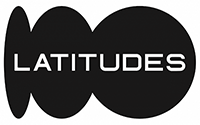REWA

There’s an unmistakable air of confidence and self assuredness that radiates from the eyes of the muses, REWA masterfully captures on her canvases. Their gazes both invite you in like an old friend, yet still intimidate enough to keep you at bay, in the knowledge that the viewer is not entirely worthy of their presence.
Regality is the phrase best used to describe REWA’s work. Not in the gaudy sense that imposes its will, or shines so brightly one is forced to turn away - but in the quiet, subdued manner that commands respect and holds your attention effortlessly.
REWA’s bold figurative portraits are by all accounts an extension of the artist herself. A melting pot of varying influences, cultures, and experiences that have shaped and moulded a person that is as comfortable haggling the price of lace fabric in the heart of the hustle and bustle of Onitsha market, as they are blitzing through the high end boutiques of London and Paris.
Born and raised between Nigeria and England, REWA’s hybrid upbringing greatly informs her work, and indeed perfectly depicts the sensation that is the modern ‘afropolitan’ woman. Forward thinking, progressive, uninhibited, and self-aware, yet still rooted, albeit loosely, in the expectations, duty and responsibility that tradition and ancient customs dictate.
In REWA’s case, that tradition and ancient custom is that of the Igbo people of South-East Nigeria, who are often described as Nigeria’s most industrious and enterprising, as well as their most independent of thought and practice. The ancient value system and custom of the Igbo people and their fierce independence is evidenced in the themes REWA unpacks in her portraits, seen through a contemporary lens. Essential themes such as the importance of coming of age, engagement, marriage and playing one’s part in their community and Igbo society at large are fundamental to REWA, and seamlessly blend the old with the modern; adapted, but never compromised to suit the times.
What stands REWA apart from most contemporary artists today, is that she transcends the title of artist, and is all but in name, a historian, and chronicler of the evolution of her ethnic group, nation and continent in real time. Through her work, we witness firsthand the assertion and confidence of women; their ability to code switch, and dip effortlessly between the West and the African continent whilst retaining their essence, and above all else the liberty of having options, and not being restricted by the confines of patriarchy and perpetually subject to the male gaze as art history is all too often guilty of.
Beyond being aesthetically captivating, REWA’s work is intellectually stimulating, thought provoking and educational. Although working through the medium of acrylic paints, it is well within reason and justified to liken the importance of her practise to that of fellow compatriots and creative greats, Chinua Achebe and Chimamanda Ngozie Ndichie, whose work, like REWA’s has put an illuminating spotlight on both past and contemporary Nigerian society; its inhabitants and their worldview.
REWA eceived a BSc. in Physiology and Pharmacology from University College London (UCL). Never having received formal art training, she is self-taught and developed her innate talent from a very early age. She finds that her spirit is moved by what she refers to as "depicted sentience" and through the celebration of the female form and bright, vivid colours.
“My subject matter is woman, I celebrate her in many forms. I use traditional materials, ink, acrylic paints and brush on paper or on canvas, to capture an essence, making the paint assemble and the ink announce.” - Rewa.
REWA’s work was featured at the Museum of Contemporary African Diasporan Arts (MoCADA) in Brooklyn, New York, at the Zeitz MOCAA Museum, Cape Town, South Africa, at the Contemporary Art Centre New Orleans (CACNO), New Orleans, USA and at the Nigerian National Museum, Lagos, Nigeria.
Read More









